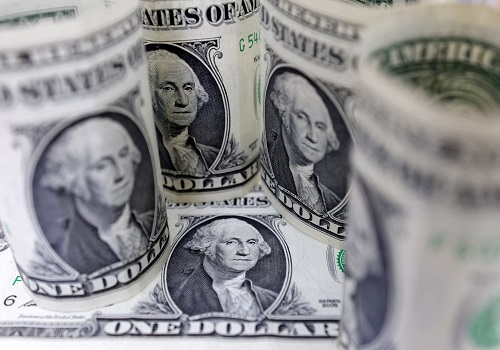Dollar slips on easing tensions over Polish missile strike

The dollar slid back on Wednesday towards the multi-month lows it hit a day earlier after the flight to the safe-haven greenback caused by a missile strike on Poland reversed, as it emerged the blast was likely caused by Ukrainian air defences.
The euro was last 0.67% higher at $1.04205 and closing in on the four-and-a-half month peak of $1.0481 it touched Tuesday after U.S. producer price inflation came in below expectations.
That data reinforced bets that last week's cooler-than-expected consumer price inflation was not a one-off. Slowing U.S. inflation, if sustained, should mean the U.S. Federal Reserve can slow or even pause the aggressive rate hikes that sent the dollar to multi-decade highs against the pound, euro and yen this year.
Daily moves were more a function of geopolitical concerns however, as the European common currency rebounded from as low as $1.028 on Tuesday when news of the explosion sent traders to the safety of the dollar, which also caused falls in equities. [MKTS/GLOB] NATO-member Poland and Ukraine initially said the blast was likely caused by a Russian missile, but Poland and NATO on Wednesday said it was likely caused by a Ukrainian air defence missile.
"Geopolitical risks continue to hang over currency markets and are likely to remain a key driver of volatility," said Kim Mundy, senior currency strategist at Commonwealth Bank of Australia.
Elsewhere, data released on Wednesday showed inflation in Britain - in contrast with the United States - continues to rise, hitting a 41-year high in the 12 months to October.
Sterling was initially unchanged after the data, but then caught onto the broader rally sparked by easing of geopolitical tension to climb 0.36% to $1.1910.
Simon Harvey, head of FX analysis at Monex Europe, said the muted initial reaction was primarily because the data was in line with the Bank of England's expectations.
Britain will announce a new budget on Thursday in which finance minister Jeremy Hunt is expected to announce tax hikes and spending cuts. The pound fell to a record low of $1.0327 in September after Hunt's predecessor Kwasi Kwarteng announced a package of unfunded tax cuts.
The dollar was flat against the Japanese yen at 139.32, near Tuesday's two-and-a-half-month low of 137.67, and was also down 0.5% on the Swiss franc at 0.9394, near Tuesday's seven-month low.
The dollar index, which tracks the greenback against six main peers, was 0.44% lower at 105.9.















